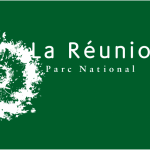
Fostering research excellence
in EU Outermost Regions


Fostering research excellence
in EU Outermost Regions

La Reunion
Research centers or research group
Given their exceptional nature, French national parks main objective is to preserve local areas.
To achieve this goal, they must fulfil certain basic roles :
Reunion National Park manages the «Pitons, Cirques and Remparts» UNESCO World Heritage site. It also prioritises natural heritage activities’ by controlling invasive species, in favour of the conservation and restoration of the well preserved ecosystems of the Mascarene Islands and protecting endangered species.
It also assists the island’s economic development via its charter, and promotes Reunion’s oustanding heritage.
The public in charge of national park are committed to scientific research, from basic research to applied research. They seek to inspire and support research for their benefit as well.
Reunion National Park is affiliated to the French Ministry of Ecology and isn’t a research body but regularly contributes to research work.
Main subject area for participation in research : Conservation biology
Research arrangements
The Studies and Heritage Department supports knowledge gathering and setting up conservation initiatives linked to the various research areas.
Field-based teams actively help collect data on natural heritage.
UNIVERSITY OF REUNION ISLAND AND CIRAD REUNION :
Several projects in ecology, natural heritage conservation and
human and social sciences
MASCARIN NATIONAL BOTANIC CONSERVATORY : Knowledge
and conservation of flora and habitats
UNIVERSITY OF TOULOUSE : Biogeography of birds
IRSTEA BORDEAUX : SHS
INDIAN OCEAN DEPARTMENT OF CULTURAL AFFAIRS / INRAP : Archaeology
CNRS CEBC CHIZÉ : “Early LIFE” programme to tag petrels with argos beacons
CEFE CNRS MONTPELLIER : Methodology for data gathering and analysis
SAFRAN ELECTRONICS & DEFENSE / MERCANTOUR NATIONAL PARK : Nighttime vision trials to observe petrels
SEABIRDS RECOVERY PROJECTS HAWAII
MUSEUM OF NEW ZEALAND TE PAPA TONGAREWA
ASSOCIATIONS : SEOR NOI GCOI , etc.
The public in charge of national park are committed to scientific research, from basic research to applied research. They seek to inspire and support research for their benefit as well.
Reunion National Park is affiliated to the French Ministry of Ecology and isn’t a research body but regularly contributes to research work.
Main subject area for participation in research : Conservation biology
Research arrangements
The Studies and Heritage Department supports knowledge gathering and setting up conservation initiatives linked to the various research areas.
Field-based teams actively help collect data on natural heritage.
UNIVERSITY OF REUNION ISLAND AND CIRAD REUNION :
Several projects in ecology, natural heritage conservation and
human and social sciences
MASCARIN NATIONAL BOTANIC CONSERVATORY : Knowledge
and conservation of flora and habitats
UNIVERSITY OF TOULOUSE : Biogeography of birds
IRSTEA BORDEAUX : SHS
INDIAN OCEAN DEPARTMENT OF CULTURAL AFFAIRS / INRAP : Archaeology
CNRS CEBC CHIZÉ : “Early LIFE” programme to tag petrels with argos beacons
CEFE CNRS MONTPELLIER : Methodology for data gathering and analysis
SAFRAN ELECTRONICS & DEFENSE / MERCANTOUR NATIONAL PARK : Nighttime vision trials to observe petrels
SEABIRDS RECOVERY PROJECTS HAWAII
MUSEUM OF NEW ZEALAND TE PAPA TONGAREWA
ASSOCIATIONS : SEOR NOI GCOI , etc.